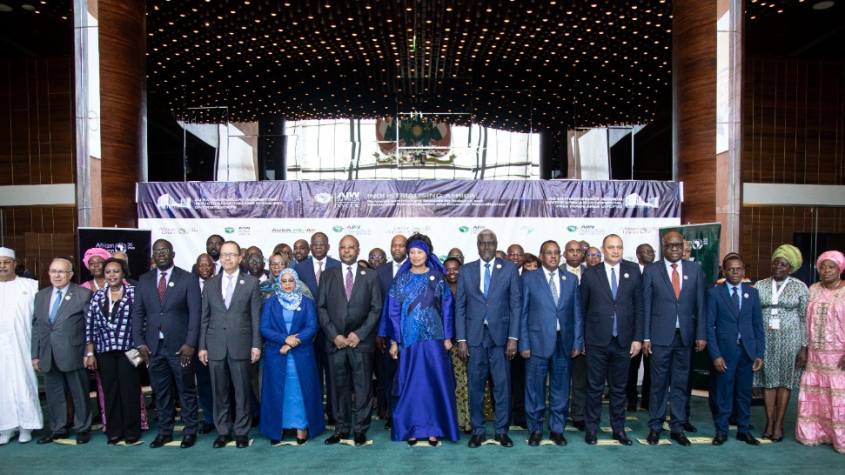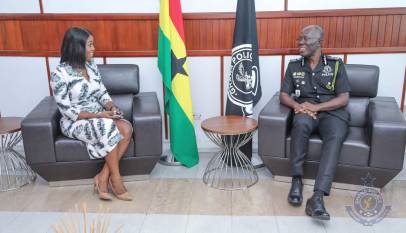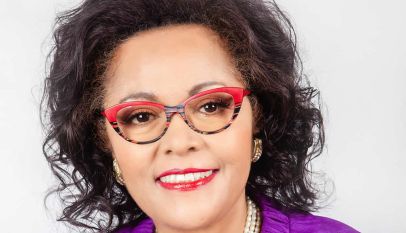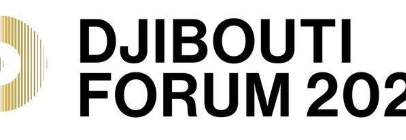Ahead of AU’s 17th extraordinary summit, Executive Council meets in Niamey
Preparatory to the 17th Extraordinary Summit of the Assembly of Heads of State and Government of the African Union on Industrialization and Economic Diversification, as well as the Assembly’s Extraordinary Session on the African Continental Free Trade Area (AfCFTA) on Friday, a session of the Executive Council held Wednesday in Niamey, Niger.
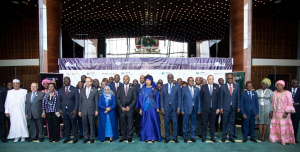
The extraordinary summit and session on industrialization and AfCFTA, respectively, were the outcome of the 35th Ordinary Session of the AU Assembly held February 2022, which underscore the intimate link between boosting intra-African trade and achieving Africa’s industrial development. The summits are part of activities in commemoration of the 2022 Africa Industrialization Week (AIW2022), billed for November 20 – 25.
Moussa Faki Mahamat, Chairperson of the AU Commission, said the summits would be held in the context of various international crises, particularly the Covid-19 pandemic and the Russia-Ukraine crisis – whose impact is still being felt across the continent – which exposed the fragility of African economies and their strong dependence on the outside world.
“Our leaders have taken the courageous and wise decision to consider reducing this dependence significantly by accelerating the continent’s industrialization process. The continent’s expectations are, on the one hand, a diversified production of manufactured goods and, on the other hand, a strengthening of intra-African trade, which should be facilitated by the full and complete operationalization of the AfCFTA,” Mahamat stressed.
The AU chief said the first phase of AfCFTA negotiations saw a commitment by States Parties to eliminate tariffs on 97% of tariff lines, laudable progress on issues related to trade facilitation, dispute settlement, rules of origin, and non-tariff barriers; just as the second phase of the negotiations had also seen remarkable progress regarding protocols on investment, competition policy, intellectual property rights, e-commerce and inclusion of women and youth in trade.
Nonetheless, Mahamat said despite progress made in the operationalization of the AfCFTA, the Agreement still had to deal with structural challenges such as strengthening trade ties between African countries (now more open to trading with the outside world through preexisting agreements) and increasing the complementarity of intra-African trade. “It would also be necessary to ensure convergence by reducing the major gaps between Member States and between the RECs in terms of development and level of integration.”
Aissata Tall Sall, Minister of Foreign Affairs of the Republic of Senegal and Chairperson of the Executive Council, said the decision to prioritize Africa’s industrialization and economic diversification was meant to improve African countries’ capacity to take advantage of the continent’s diverse human and natural resources. To this end, Ms Sall said the private sector had a crucial role, reiterating the African position for “a fair and equitable” energy transition.
“With only a 1.8% contribution to global manufacturing value added and a 10.5% industrialization rate according to UNIDO, while in East Asia it is 25%, Africa has a lot of progress to make in this key area for its economic emergence and social development. Indeed, the industrialization of Africa can unlock the continent’s potential for inclusive growth by expanding access to the economic opportunities thus created for all segments of the population, especially women and youth.”
Minister Sall commended the inspiring leadership of former Nigerien President Mahamadou Issoufou, Champion of the AfCFTA, for his continuous advocacy for the rapid and effective operationalization of the Agreement. She also acknowledged the outstanding roles of AfCFTA Secretary General Wamkele Mene as well as Member States of the AU, RECs and African financial institutions, particularly the African Development Bank (AfDB) and African Export-Import Bank (Afreximbank).
Antonio Pedro, Ag. Executive Secretary of the Economic Commission for Africa (ECA), one of the Summit’s organizing partners, described Africa’s export diversification as low compared to regions like America, Asia and Europe, noting that the continent’s exports were largely primary commodities and extractives, exposing African countries to fluctuations in commodity prices.
“Between 2016 and 2021, oil constituted 37% of Africa’s total exports, the bulk of exports over this period. Intra-African trade is more diversified. In the same period, intra-African trade in mineral fuels was about 20%, while trade in manufactured goods was estimated at 44% and trade in food products was 20%. This clearly proves intra-African trade is far and away more crucial to accelerating the industrialization of the continent than Africa’s trade with the rest of the world.”
The ECA chief therefore said premising the conversation on industrialization and economic diversification around the implementation of the AfCFTA was in the right direction, highlighting the need to increasingly align industrial policies with trade policies, to ensure Africa increasingly trades with itself across a diverse range of products as a strategy to build a resilient continent that can withstand external shocks.
“We have always known that Africa’s sustainable economic transformation requires accelerated and sustainable industrialization. It is high-time we learn the lessons fast, seize the opportunities inherent in these crises by diversifying our economic base, enhancing our research and development capacity, and investing in industrialization. That way lies Africa’s renaissance. The AfCFTA is a critical tool to support this transition,” he assured.
Pedro said industrialization was not just an option for Africa; rather, it was an imperative! By adding value to its mineral resources, the ECA chief believes Africa can turn the persistent bane of its resources into a persistent boon. “As we drive industrialization, we also need to realize that industrialization is not an event, but a process, and a long one at that. And, of course, we should be mindful that industrialization is not the business of ministries of industry alone.
“Instead, the implementation of true industrial policy requires a whole government and beyond approach and action. It requires aligning industrial, trade and other sectoral policies and putting science, technology and innovation at the centre to ensure we remain globally competitive beyond our initial endowments and comparative advantages. Africa has the opportunity to pursue its industrialization in a green, inclusive and sustainable way,” he averred.
The ECA chief said Africa was home to 60% of the world’s solar radiation, 70% of its cobalt and significant reserves of other battery minerals, world class carbon sink assets, and a huge green hydrogen potential, noting that these assets can position the continent as a powerhouse and a globally competitive investment destination for multisectoral investments – merging climate action, job creation and industrialization.
“We often dedicate significant time and resources to foreign direct investment. However, we should also put significant efforts into creating favorable conditions for domestic investment, facilitating the emergence of more African captains of industry. Let us not be naïve. Achieving our strategic goals in line with the aspirations of Agenda 2063 will require leadership, common action and geo-strategic engagement that is focused and well targeted, in which we use our bargaining power effectively,” Pedro urged.
The Executive Council session considered the Report of the Joint Preparatory Meeting of the Ministers of Industry and Economy, held earlier this November; and the Draft Decision and Declaration of the Extraordinary Summit on Industrialization and Economic Diversification. The meeting also witnessed the presentation of the Report of the AfCFTA Secretary General and the draft Report of the 1st Extraordinary Session of the Council of the Ministers of Trade.
The meeting also considered the draft Decision of the Extraordinary Session on the AfCFTA and the draft work programme of both the Extraordinary Summit on Industrialization and Economic Diversification and the Extraordinary Session on the AfCFTA. The session also saw the launch of AfCFTA’s additional operational tools; namely, AfCFTA E-Tariff Book; AfCFTA Rules of Origin Manual; and AfCFTA Guided Trade Initiative.

